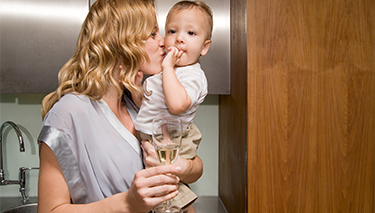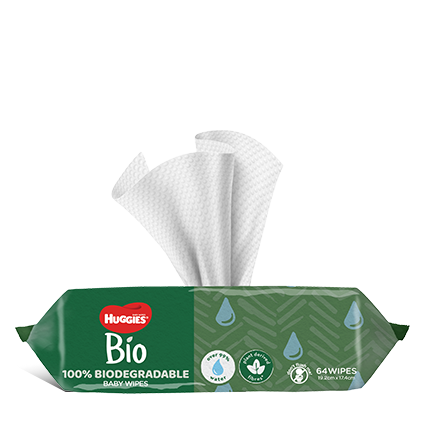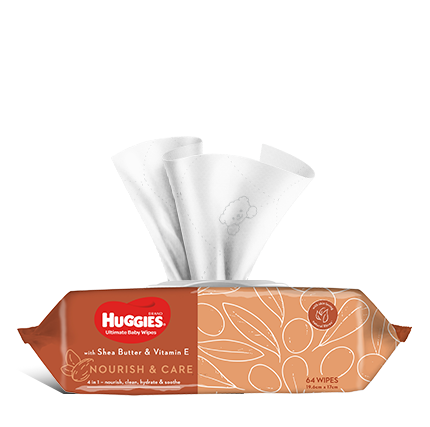Breastfeeding Positions
One of the most important factors when breastfeeding is comfort, not just for babies but for mothers as well. Undue stress and strain can lead to muscle tension and fatigue which in turn can influence a mother’s “let down” response.
Over time, this can potentially have an impact on breast milk supply. Breastfeeding needs to be a comfortable experience, so it’s worth putting in a little planning to make it as pleasurable as possible. It’s also important to try and relax beforehand and to position yourself so that you are well supported. Pillows, a supportive chair including a foot rest or even a bed for lying or sitting on are all good zones for breastfeeding. Lots of new mothers find they develop a preference for feeding in one place. Until breastfeeding becomes familiar, it can help build feelings of security to be consistent with one feeding environment.
Of course, don’t feel you need to limit the places where you can feed your baby. That’s one of the many advantages of breastfeeding – wherever you are, your baby won’t be far behind. Having older children around will also mean you’ll need to be semi-active and adaptable to moving where they are to still keep an eye on them. It helps of course to have somewhere comfortable to sit when you are breastfeeding. But even this isn’t essential.
Since the dawn of time lots of mothers have needed to breastfeed whilst they are standing, with their baby either cradled in their arms or in a sling. Babies are pretty proficient at finding the nipple and attaching themselves but they still need to feel secure and well supported so they can relax and concentrate on feeding.
Requirements for Breastfeeding
- Yourself of course and one or more hungry babies if you have had a multiple birth.
- A comfortable chair. One with a high supportive back, with or without arm rests. Just make sure these don’t restrict the space needed for the baby’s head and your elbows.
- If you have had a vaginal delivery and are sore because of stiches or perineal bruising, you may want to sit on an air cushion or a soft pillow.
- Some pillows. Breastfeeding designed pillows are ideal, as are boomerang shaped cushions.
- A nappy, spill cloth or other absorbent fabric. Babies are prone to positing during and after their feeds.
- A drink of water for yourself. A sports bottle with a squeeze type lid is ideal as it can be used one handed and they often have enough capacity to promote adequate fluid intake.
- Your home phone and mobile nearby if you are expecting calls.
- Don’t forget to go to the toilet before you start feeding. If you have toddlers you may want to get them some toys to play with, a snack and a drink so you don’t need to interrupt the baby’s feeding to attend to your older child.
- If you need to offer a bottle after the breastfeed, have this prepared before you sit down to breastfeed.
- Wearing clothing which does not restrict your baby’s access to your breast. Shirts which unbutton down the front or which can easily be lifted to expose the breast are ideal.
- Try to position yourself so you have something to look at. Gorgeous as they are, you may want to focus even momentarily on something other than your baby during long breastfeeds. A television, open window, DVD or even the backyard can all provide a break from focusing solely on the feeding.
Positions
- The cradle, front or Madonna hold is the most popular way to hold a breastfeeding baby. The mother supports her baby as they are lying across the front of her lap. Using the arm which is on the same side as the breast she is offering means that she can have one arm and hand free to help the baby attach.
- An alternative to this is for the mother to use the opposite arm to the breast she is offering, to support the baby across her lap. This is called the cross cradle hold and is a popular option for mothers and their babies who are still getting used to breastfeeding.
- Breastfeeding lying down. Both the baby and the mother are lying down parallel, on their sides whilst facing each other with their tummies aligned. This position is popular for mothers who have had caesarean section deliveries or who have a sore perineum. It also offers an opportunity for tired mothers to rest during breastfeeding.
- Football or underarm breastfeeding. This is when the baby is positioned lying down underneath the mother’s arm and she supports the baby’s head with one hand. This is ideal for mothers who have large breasts and who find difficulty with alternative positions in seeing how their baby is attaching. It is also used to rotate the point of stress on the nipple when attachment has become painful.
- Twin feeding is when each baby is positioned underneath their mother’s arms and their heads are close together.
- Saddle hold is when the baby is sitting upright and their bottom is supported by their mother’s cupped hands or her arms. This is often used for older toddlers who become very efficient little feeders and may only want to comfort suck for a short period of time.
Changing breastfeeding position is sometimes recommended when a mother has been diagnosed with mastitis or a blocked milk duct. It can take a couple of days to adjust to this change, but with perseverance it soon becomes more familiar.
Whatever position you choose to breastfeed is up to you. You may even find that you alternate what you do, dependent on where you are feeding. It pays to be adaptable and follow your baby’s lead. But remember – don’t neglect your own needs for comfort. Breastfeeding can take many hours and when added up, becomes a significant portion of how each day and night is spent.
Last Published* May, 2024
*Please note that the published date may not be the same as the date that the content was created and that information above may have changed since.




















